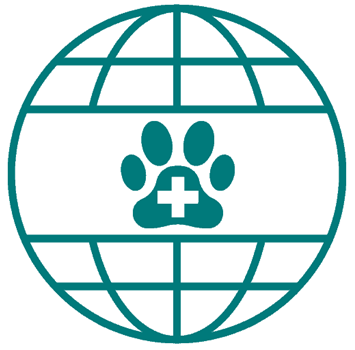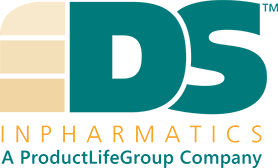Animal health relies on veterinary medicine. Ongoing development of novel therapeutics protects animals from numerous conditions and diseases and helps inhibit the transmission of zoonotic diseases to humans.
Regulatory chemistry, manufacturing, and controls (CMC) is key to this development, concentrating on animal medications and their structure, manufacturing practices, and quality.
Global harmonization of regulatory CMC procedures aims to enhance and simplify these processes, making veterinary drugs more robust and efficient to create.

Image Credit: Design Space InPharmatics LLC
Aligning regulatory CMC practices throughout different regions enables reduced time and cost of bringing new veterinary products to market and ensures sufficiently high levels of product quality are maintained.
The importance of regulatory expertise
It is critical to identify the intricate regulatory requirements directed by agencies like the United States Food and Drug Administration’s Center for Veterinary Medicine and the European Medicines Agency.
They require comprehensive documentation and adherence to strict guidelines throughout the drug approval process. Experience in understanding these regulatory areas ensures animal medications meet all necessary criteria for efficacy and safety.
Comprehensive CMC documentation
CMC practices require meticulous preparation, review, and submission of documentation to be effective. This documentation is important in ensuring compliance with regulatory requirements and is a core means of communicating with regulatory authorities.
CMC documentation contains detailed information on the manufacturing processes used to produce veterinary drugs, as well as control strategies and quality assurance measures.
Analytical and quality assurance
Establishing and evaluating drug efficacy and safety relies on robust analytical services, including method development, validation, and stability testing.
Appropriate quality assurance processes, such as good manufacturing practice audits and appropriately implemented quality systems, ensure that veterinary products always meet the highest standards.
Rigorous quality assurance must be maintained to ensure veterinary drugs’ approval and market success.
Drug development and manufacturing
Rigorous processes are required when developing and manufacturing veterinary drugs to ensure the final product’s quality and safety.
This involves drug substance development in the initial stages, drug product formulation optimization, and manufacturing process scale-up.
To ensure regulatory approval and market acceptance, these processes must be consistent and reliable.
Navigating compliance
Adherence to international standards, including those established by the Veterinary International Conference on Harmonization, is also essential for market approval.
These standards provide guidelines regarding the quality, safety, and efficacy of veterinary medicinal products. They are continuously updated, and compliance is crucial to ensuring that veterinary products remain safe and effective.
Continuous education and support
Implementing ongoing monitoring and optimization steps into manufacturing processes, including routine updates and strategic insights into new and existing products, enhances compliance and product quality.
Regulatory CMC harmonization efforts ensure the high standards of animal healthcare are maintained while ensuring that animal medications are globally accessible, effective, and safe.
The global impact of harmonization
Global harmonization of regulatory CMC for animal medications has various benefits. It can accelerate the development of novel therapeutics and enable cooperation between national authorities on regulatory assessments.
A veterinary drug developed and approved in the United States, for example, could be submitted for approval in Australia or Europe with minimal extra work, reducing the time and resources required to bring new veterinary products to international markets.
Specific considerations
Different regions have distinct approaches to stray animal control. In regions where stray animals are not native, they are trapped and euthanized due to their effect on native wildlife. Other regions, however, employ spay-neuter programs to help prevent overpopulation.
Global harmonization can benefit the sterilants in these programs, allowing products to be utilized across regions without major regulatory hurdles.
Summary
The journey toward the global harmonization of regulatory CMC in animal medications presents several challenges and opportunities. Aligning regulatory practices across regions will allow companies to better streamline veterinary medicines’ development and approval, ensuring these medicines are safe, effective, and accessible worldwide.
DS Inpharmatics’ team of over 60 specialists guides its clients through the complex landscape of drug development, regulatory submissions, and CMC processes.
Expanding the global reach of veterinary medicines, including companion animals, food-producing animals, and wildlife, is pivotal. Businesses benefit from global harmonization as it accelerates veterinary solution availability across diverse markets and decreases duplication of efforts.
The International Council for Harmonization of Technical Requirements for Pharmaceuticals for Human Use is central to this process, offering guidelines to help standardize regulatory requirements.
Acknowledgments
Produced from materials originally authored by Meranda Parascandola from Design Space InPharmatics LLC.
About Design Space InPharmatics LLC
DSI provides regulatory, technical, and project management consulting services to healthcare product companies that manufacture and/or market pharmaceuticals, biopharmaceuticals, and cellular and gene therapy products.
Since 2007 we have provided our clients with innovative strategies and exceptional quality work products intended to enhance product development, approval, and marketing presence.
Whether advocating CMC strategy, directing CMC operations, or developing CMC submission content that represents the best interests of emerging biotech, we focus on the critical CMC issues and build programs that enhance development.
Sponsored Content Policy: News-Medical.net publishes articles and related content that may be derived from sources where we have existing commercial relationships, provided such content adds value to the core editorial ethos of News-Medical.Net which is to educate and inform site visitors interested in medical research, science, medical devices and treatments.